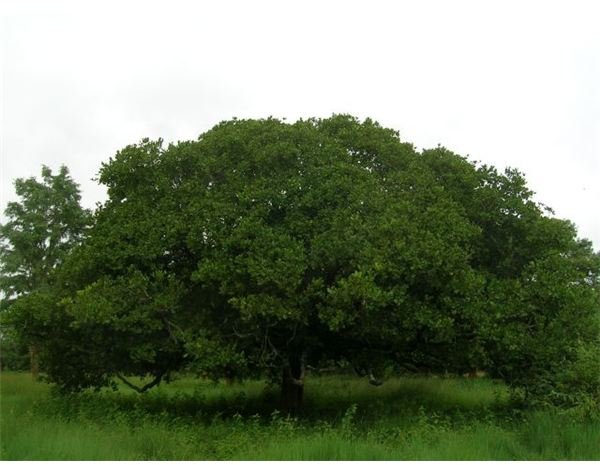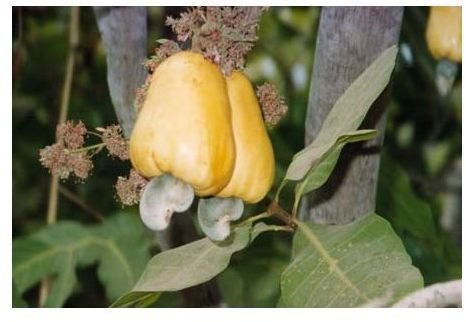What are the Health Benefits of Cashew Nuts?
What are Cashew Nuts?
The cashew nut is a kidney or boxing-glove shaped nut of the cashew tree that grows at the end of the cashew fruit. The tree, scientifically called Anacardium occidentale, is mainly found in equatorial South America. In the late 16th century, the Portuguese brought it to India and then it was introduced to Asia and Africa.
Is a Cashew a Nut?
The cashew fruit, better known as the cashew apple, is a pear-shaped pseudo-fruit. The fruit has a strong sweet smell and taste and is edible. The cashew nut develops at the end of the fruit. You might think a cashew nut is a kind of a nut, but botanically, it is a seed.
Contrary to the popular belief that cashew nuts are loaded with fats, experts say the fat is actually monounsaturated fat, which lowers bad cholesterol. Let’s learn more about the health benefits of cashew nuts:
(Image: The cashew fruit, courtesy: https://en.wikipedia.org/wiki/File:Gui1_cashewfruit2.jpg)
Benefits of Cashew Nuts
According to health experts, eating plenty of nuts cuts the risks of heart disease. Most people are of the opinion that nuts such as cashews, almonds and peanuts add more pounds. Experts rubbish these claims because the fat in nuts is actually unsaturated fats. Cashew nuts are full of monounsaturated fats. Frank Hu, MD. PhD. lead researcher of the Harvard School of Public Health says that mono and polyunsaturated fats lower bad cholesterol, or LDLs (low density lipoproteins).
Health benefits of cashew nuts are aplenty. Cashews are rich in iron, phosphorus, selenium, magnesium and zinc. They are also good sources of phytochemicals and antioxidants that protect us from heart diseases and cancer. Rich in protein, cashew nuts are cholesterol free. Here are some more benefits of cashew nuts:
• Cashew nuts boast a high amount of dietary fiber, which has a good effect on weight management, but only when moderately eaten.
• The magnesium content in cashew nuts is beneficial for promoting bone growth.
• Cashews are rich in antioxidants. Antioxidants help in eliminating free radicals that causes cancer.
• Cashew nuts are also high in copper, which is very good for flexibility in bones, joints and blood vessels.
• Controlled studies by many research institutes including the Harvard School of Public Health have shown that people, who add nuts like cashews, almonds, etc. to their diets, had their LDL levels reduced by 12 percent. People with high LDL are more prone to coronary artery disease.
Cashew Nut Consumption Tips & Facts
• Shells of cashew nuts can be very allergic to most people. If a person touches it, he or she can develop skin rashes. That’s why cashews are always shelled, dried and then sold in the markets.
• While the most common form comes in plain variety, some cashews are oil-roasted and salted. Always choose the plain variety and

avoid salted and oil-roasted ones if you want to reduce sodium and added fats in your diet. If you like, you can roast them on a baking tray at 180 degrees Celsius without adding any oil.
• Avoid eating more than 3 servings per week. One serving (30 grams) has eighteen medium sized cashew nuts. Simply having more cashews in your diet may add extra calories.
• Cashew nuts are also a great cheese alternative for vegans.
• You can prepare delicious cashew nut milk by putting water and eighteen to nineteen pieces of cashew nuts in the blender. The cashew nut milk can be a great substitute for cow’s milk.
(The cashew nut Tree, photograph by L. Shyamal Courtesy, https://en.wikipedia.org/wiki/File:Anacardium_occidentale_tree.jpg, Author: L. Shyamal)
References
https://www.health24.com/dietnfood/Healthy_foods/15-18-21-638.asp
https://www.healthrecipes.com/cashews.htm
https://www.medicinenet.com/script/main/art.asp?articlekey=50737
